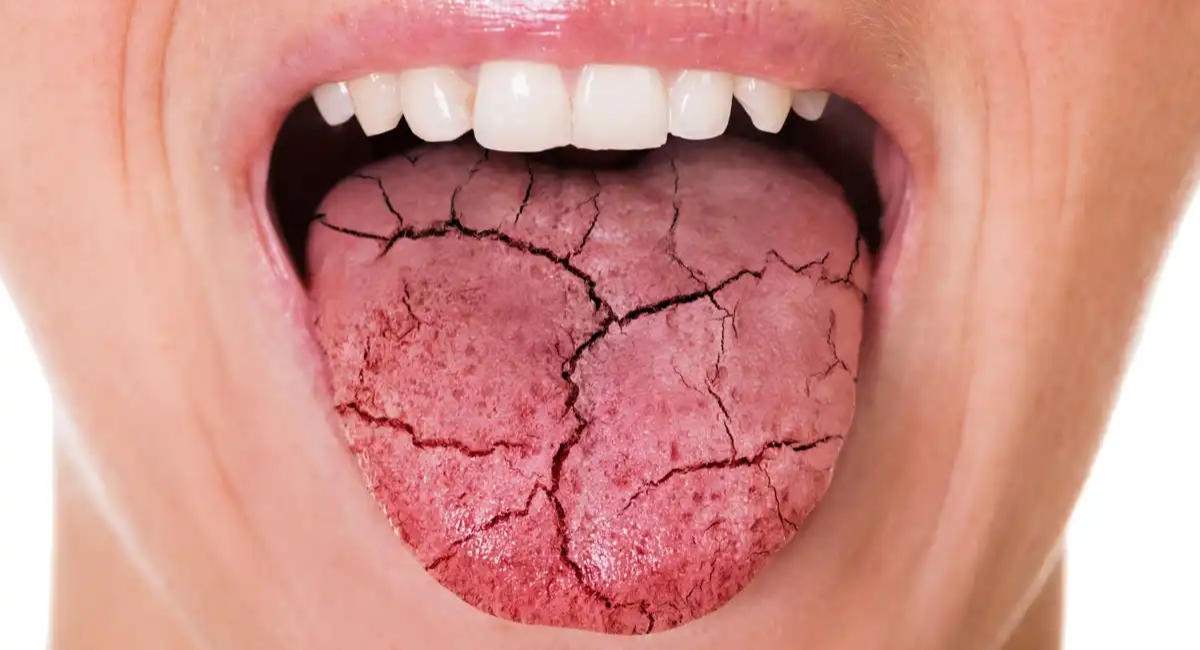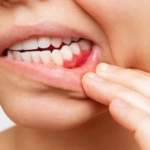How to Recognise and Treat Dry Mouth – Causes and Solutions
Experiencing a dry mouth more often than usual?
You’re not alone.
Dry mouth, or xerostomia, can be an uncomfortable and sometimes persistent condition. It’s more than just thirst – it can impact your oral health, speech, and even digestion.
Our dentists often encounter patients seeking solutions for this frustrating problem. Let’s dive deeper into the reasons behind dry mouth and explore remedies that bring relief.
Common Reasons for Dry Mouth
Understanding the cause is the first step toward effective treatment. Here are some common reasons why your mouth might feel unusually dry:
- Medications: Many over-the-counter and prescription medications list dry mouth as a side effect. These include antihistamines, decongestants, antidepressants, and blood pressure medicines.
- Medical Conditions: Health conditions like diabetes, Sjögren’s syndrome, and Parkinson’s disease are often linked to reduced saliva production.
- Lifestyle Choices: Smoking, excessive alcohol consumption, and a high-caffeine diet can significantly contribute to dryness in the mouth.
- Dehydration: Insufficient water intake or fluid loss due to sweating, vomiting, or diarrhoea can reduce saliva production.
- Aging: As we age, natural saliva production may decline, particularly if coupled with other health issues or medications.
- Mouth Breathing: Breathing through your mouth, especially during sleep, can dry out oral tissues.
How to Recognise Symptoms?
It’s not always easy to identify dry mouth, especially in its early stages. Be on the lookout for these signs:
- A sticky or dry feeling in the mouth.
- Difficulty chewing, swallowing, or speaking.
- A dry or rough tongue.
- Cracked lips or sores at the corners of the mouth.
- A burning sensation in the mouth or throat.
- Persistent bad breath.
- Changes in taste perception.
If you notice these symptoms, it’s time to address the issue before it worsens.
Effective Remedies for Dry Mouth
The good news is that this issue can often be managed or alleviated. Here are some proven remedies to consider:
1. Stay Hydrated
Drinking plenty of water throughout the day can help maintain saliva levels. Keep a water bottle handy and take small sips regularly.
2. Use a Humidifier
Adding moisture to the air, especially while sleeping, can prevent your mouth from drying out overnight.
3. Chew Sugar-Free Gum
Chewing gum or sucking on sugar-free candies stimulates saliva production. Look for options containing xylitol, which also helps fight cavities.
4. Avoid Drying Agents
Limit alcohol, caffeine, and tobacco use, as these can worsen dryness. Opt for hydrating beverages and oral-friendly habits instead.
5. Over-the-Counter Saliva Substitutes
Specialised products like saliva sprays, gels, or lozenges are designed to mimic natural saliva and keep your mouth moist.
6. Regular Oral Hygiene
Brush and floss diligently to prevent complications like cavities or gum disease. Use fluoride toothpaste and an alcohol-free mouthwash to protect your teeth.
7. Consult a Dentist
If symptoms persist, seeking professional advice is essential. Your dentist can identify underlying issues and recommend tailored treatments, including prescription medications or specialised mouth rinses.
Lifestyle Tips
Adopting healthy lifestyle habits can play a significant role in preventing or reducing dry mouth episodes. Here are some practical tips:
- Eat water-rich foods like cucumbers, watermelon, and oranges to boost hydration.
- Avoid overly salty or spicy foods that can irritate a dry mouth.
- Breathe through your nose rather than your mouth, especially during exercise or sleep.
- Carry a small water spray bottle to moisten your mouth when dryness strikes unexpectedly.
- Practise stress-reducing activities like yoga or meditation, as stress can exacerbate dry mouth symptoms.
Medications and Treatments for Persistent Dry Mouth
For severe cases, medications may be necessary to stimulate saliva production or manage symptoms. Common options include:
- Pilocarpine and Cevimeline: Prescription medications that increase saliva production.
- Fluoride Treatments: Applied directly to teeth to protect against decay caused by dry mouth.
- Prescription Mouth Rinses: Designed to reduce dryness and prevent infections.
Your dentist or healthcare provider can determine the best course of action based on your specific needs.
Why Seek Professional Care?
This oral issue might seem like a minor inconvenience, but it can lead to significant oral health issues if left untreated. Chronic dryness can result in:
- Increased risk of cavities and gum disease.
- Difficulty wearing dentures.
- Fungal infections like oral thrush.
Our best dentists in Kolkata specialise in diagnosing and treating dry mouth effectively. With professional care, you can protect your oral health and enjoy lasting relief.
Dry mouth doesn’t have to disrupt your life. By recognising the symptoms early and adopting the right remedies, you can manage the condition effectively. From simple hydration to professional dental care, a range of solutions is available to ensure your mouth stays healthy and comfortable. Remember, this is a sign to seek expert advice, so don’t hesitate to reach out to your dentist.



